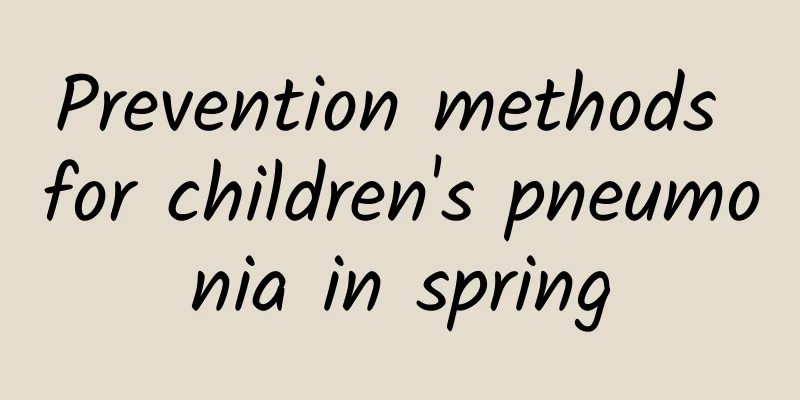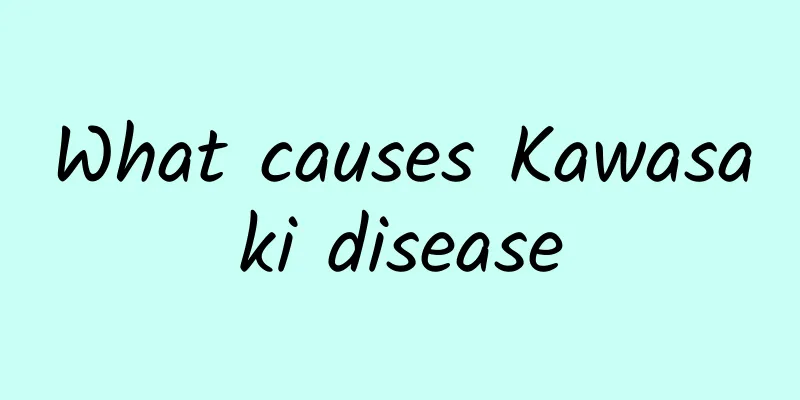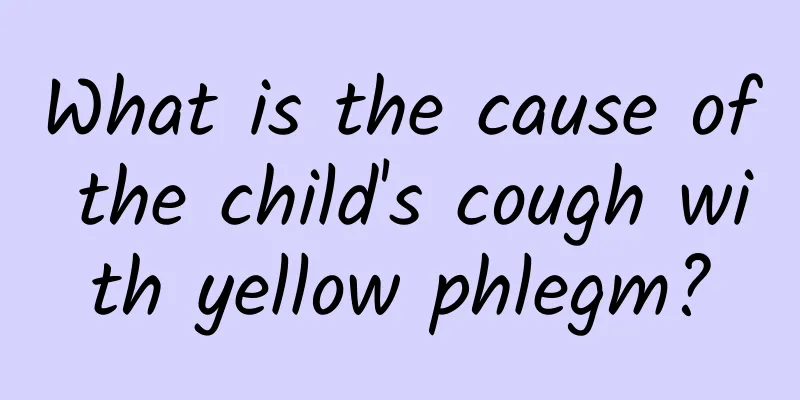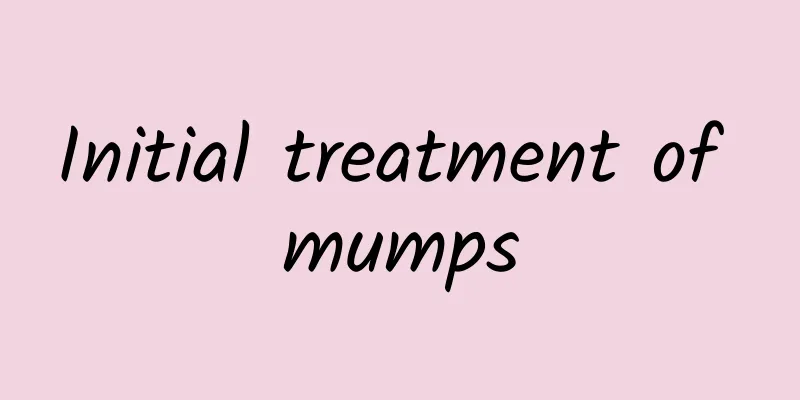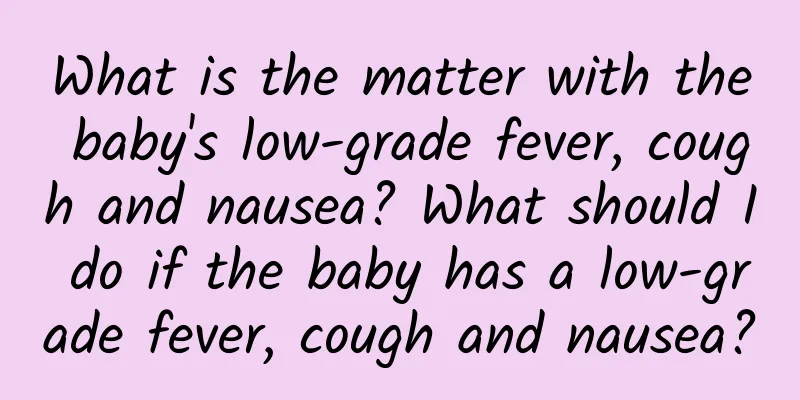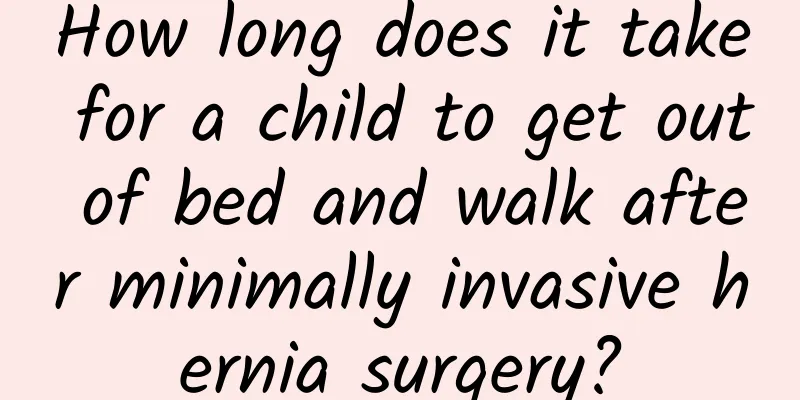Prevention and treatment of neonatal jaundice

|
Neonatal jaundice refers to a condition in which the skin and sclera appear yellow due to abnormal bilirubin metabolism. Most physiological jaundice does not require special treatment, but some pathological jaundice requires timely intervention. Prevention of neonatal jaundice should start with maternal and child health, feeding methods and nursing measures. Treatment methods include light therapy, exchange transfusion therapy and drug therapy. 1. Causes of neonatal jaundice Neonatal jaundice can be divided into two types: physiological and pathological: 1. Physiological jaundice: It is a short-term manifestation of normal metabolism, which usually occurs 2-7 days after birth. It is caused by the immaturity of the liver function of the newborn and the rapid metabolism of red blood cells. It will generally disappear on its own within two weeks. 2 Pathological jaundice: often caused by infections such as TORCH syndrome, hemolytic diseases such as maternal-fetal blood type incompatibility, premature birth, biliary atresia, etc. It usually appears early and is more severe, and may cause permanent damage to the baby's nervous system. 2. Methods for preventing neonatal jaundice 1. Health management during pregnancy: Mothers should have regular prenatal checkups, monitor infection indicators, avoid contact with harmful substances, maintain a balanced nutrition, and promptly deal with pregnancy complications or infection risks such as mother-to-child transmission of hepatitis B virus. 2 Promote early sucking and feeding: The baby should be breastfed as soon as possible after birth. Frequent breastfeeding can promote the excretion of bilirubin through feces. If breast milk is insufficient, formula milk can be supplemented to avoid worsening jaundice due to fluid imbalance. 3. Moderate sunlight exposure: Moderate sun exposure avoiding direct sunlight helps the body metabolize bilirubin and reduces the possibility of developing jaundice. 3. Treatment measures for neonatal jaundice 1. Light therapy: Blue light changes the structure of bilirubin and promotes its excretion, and is widely used in the treatment of moderate to severe jaundice. This non-invasive method needs to be implemented under the guidance of a doctor in a safe environment in a hospital. 2. Exchange blood therapy: For severe cases where hyperbilirubinemia can lead to bilirubin encephalopathy, exchange blood therapy can quickly remove excess bilirubin and improve the condition. 3. Drug treatment: For example, phenobarbital helps induce liver enzyme production and improve the efficiency of bilirubin metabolism; bile acid drugs can be used as an auxiliary treatment for obstructive jaundice or extrahepatic biliary disease. Note that the symptoms of pathological jaundice are usually severe. If you find that your baby's jaundice appears within 24 hours of birth, or it is still dark yellow after two weeks, you need to go to the hospital for professional diagnosis in time. Most neonatal jaundice is benign, so parents do not need to be overly nervous. However, pathological jaundice must be identified and treated early to avoid serious consequences. Healthy pregnancy begins with scientific management and early intervention by both mother and baby, and regular follow-up is an important measure to ensure the health of newborns. |
<<: Side effects of taking Yinzhihuang for infant jaundice
>>: What should children eat to cure cold, cough and sore throat?
Recommend
Is patent ductus arteriosus serious in children?
Patent ductus arteriosus in children is a congeni...
How to prevent early kidney disease in children
With the improvement of living standards, kidney ...
What are the three commonly used drugs for breast milk diarrhea?
What are the three commonly used drugs for breast...
When can baby's congenital megacolon be seen?
Hirschsprung's disease can usually be detecte...
Key points to note when preventing mumps
The key points to note in preventing mumps are va...
What are the examination items for pediatric eczema?
Eczema is a common inflammatory skin disease of t...
Research has found that electric mosquito coils are liver toxic? So can electric mosquito coils still be used? This article will tell you
On summer nights, the breeze brings coolness, but...
How to treat children's upper respiratory tract infection cough
When children have upper respiratory tract infect...
Is dry cough in children related to allergic rhinitis?
Dry cough in children may be unrelated to allergi...
Can acute laryngitis in children be cured?
Acute laryngitis in children is common in this se...
What causes pneumonia in children?
We all know that the environment around us will c...
What are the symptoms of mumps in children?
If a child is found to have swollen parotid gland...
What is neonatal persistent cholestatic jaundice? Analysis of the causes of neonatal jaundice
(I) Causes of the disease There are many causes o...
What to eat for stunted growth? Eating more of these 4 foods can help treat stunted growth
For children with developmental problems, parents...
How many days does hand, foot and mouth disease usually take to heal?
Generally speaking, mild patients can recover wit...


